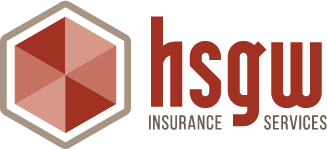While finding your dream home is exciting, it can also be a busy and overwhelming process. The last thing a buyer or real estate agent wants to see is a transaction be derailed because of insurance issues. Below you will see the many underwriting factors that go into insuring a newly purchased home. Keeping these at the forefront of agents’ and buyers’ minds can go a long way towards avoiding surprises as the closing date nears.
- Territory: Where you live has a large effect on your insurance rates. Certain areas are more susceptible to wind/hail storms, crime, and fire. Regarding the latter, your responding fire department has a major role in your insurance premium. If the home is located more than 5 miles from a fire department, or more than 1000 feet from a fire hydrant, chances are your rates will be much higher.
- Prior Insurance/Longevity: Most companies will give you discounts for having prior home insurance in place, whether it is homeowners or renters. Some will give additional discount for length of time with the prior carrier.
- Claim History: This is a major factor in homeowner insurance rates. Insurance statistics show that having claims on record makes the customer much more likely to turn in future claims as well. Note that some companies surcharge less for weather-related claims such as wind and hail compared to “preventable” claims such as fire, theft, dog bite liability, etc.
- Credit: This is a very underrated insurance rating factor that is has a growing affect on rates. Statistics show that homeowners with higher credit scores have a lower risk level. They file fewer claims than homeowners with poor credit. As a result, they are rewarded with less expensive rates.
- Home Age: Newer homes are more likely to be structurally sound and pose less liability risks than older homes. Therefore newer homes have lower insurance rates.
- Home Construction: Homes with sturdy, fire-resistant materials like brick and stone are usually a bit cheaper to insure, although the savings sometimes gets negated by the higher cost of replacement if destroyed by other perils.
- Home Updates: If a home is more than 15-20 years old, it is very important that updates have been made to the roof, HVAC, plumbing, and electrical systems. The roof is the biggest factor, and insurance companies like to see asphalt or architectural shingles with a pitch. Roof types such as flat/rubber, shake, or slate can be more difficult and/or expensive to insure. Older electrical components such as fuse box or knob and tube wiring can be deal breakers, as can older heating systems such as boiler/radiator heating.
- Safety & Security Features: Homes should always have deadbolt locks, fire extinguishers, and smoke detectors. Having a monitored burglar/fire alarm system can also offer substantial discounts, especially in elevated crime areas.
- Pets: Certain dog breeds are deal breakers for most insurance companies, commonly including Akita, Mastiff, Pit Bull, Chow Chow, Doberman, Bull Terrier, Rottweiler, Wolf Hybrid, and more (including mixes). Any pet with bite history will likely cause ineligibility, as will certain exotic pets.
- Other Liability Hazards: Homes with pools are usually insurable, but companies will have stringent guidelines on surrounding fencing, diving boards, slides, depth, etc. Trampolines can be an issue, but it helps if they are netted. Wood stoves can cause ineligibility, but it helps if they are professionally installed.
- Inspections: Many insurance companies do inspect the homes that they insure. Some do an external only inspection, others are more thorough with the interior. All will look for obvious liability concerns that could cause cancellation or surcharging if not addressed.
- Coverage: A proper home policy should have an adequate replacement cost, maximum personal liability limits, earthquake coverage, water/sewer backup, dwelling replacement extension, and possibly ordinance and law coverage, loss assessment, identity theft, and valuable articles rider. The deductible can be raised to help offset up front premium costs.
The best piece of advice when considering home and/or auto insurance is to consult with a Trusted Choice® independent insurance agent!

